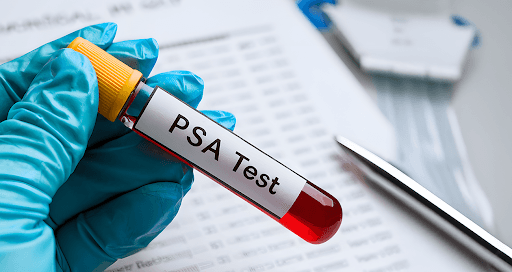
PSA (Prostate-Specific Antigen) is a protein produced by the prostate gland. While an elevated PSA level can be a sign of prostate cancer, it can also be caused by other factors. Therefore, it's crucial to consult with your healthcare provider for personalized recommendations on PSA testing frequency.
Normal PSA levels vary between individuals. However, a level below 4 nanograms per millilitre (ng/mL) is generally considered normal for men under 50. As men age, PSA levels naturally increase.
Who Should Get a PSA Test?
- Men over 50: Regular PSA tests are recommended for men over 50 as part of their routine health screenings.
- Men with Increased Risk: Men with a family history of prostate cancer, African American men, or those experiencing symptoms like frequent urination, weak urine flow, or blood in the urine may benefit from earlier PSA testing.
- Men with BRCA2 Mutations: Men carrying BRCA2 mutations may be at an increased risk and should consider earlier testing.
A Risk-Adapted Approach
Rather than a one-size-fits-all approach, a risk-adapted strategy can help tailor PSA testing to individual needs. This involves:
- Initial PSA Level: The initial PSA level can help determine follow-up intervals.
- Life Expectancy and Performance Status: For men with limited life expectancy or poor performance status, aggressive screening might not be beneficial.
Guidelines for PSA testing:
- Men from 50 years of age: Should consider regular PSA testing if symptomatic.
- Men from 45 years of age with a family history of prostate cancer: Should consider earlier PSA testing.
- African American men from 45 years of age: Should consider earlier PSA testing.
- Men carrying BRCA2 mutations from 40 years of age: Should consider earlier PSA testing.
Your Uro-Oncologist will also use your initial PSA level to determine the frequency of follow-up testing for a risk adapted approach.
- Men with a PSA level of > 1 ng/mL at 40 years of age: Should follow up every 2 years.
- Men with a PSA level of > 2 ng/mL at 60 years of age: Should follow up every 2 years.
- Men not at risk: May be able to postpone follow-up to 8 years.
It's important to remember that PSA testing is not a definitive diagnosis for prostate cancer. Ultimately, the decision to undergo PSA testing should be made in consultation with your healthcare provider based on your individual circumstances.
If your PSA level is elevated, your Uro-Oncologist may recommend further testing, to determine the cause.
Need expert care for urological concerns from the best Urology Hospital in Faridabad ?
Book an appointment today – 0129-3521234
Department of Urology
Amrita Institute of Uro-Oncology and Robotic Surgery
Faridabad, Haryana, India







